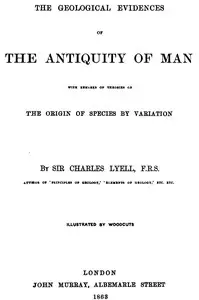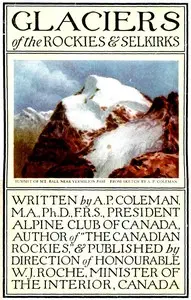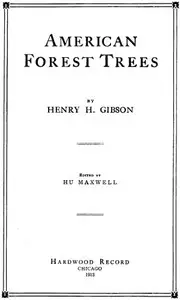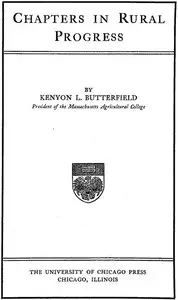"Principles of Geology" by Sir Charles Lyell is a groundbreaking exploration of the earth's ever-changing surface and its impact on the life it harbors. Lyell's work seeks to clarify geological concepts by studying current events so that we can better grasp the planet's past. Lyell wants to show how present happenings, like how rivers cut canyons, or how volcanoes change the land, can explain what happened long ago. He stresses the importance of watching these ongoing forces to understand the immense history recorded in rocks and landscapes. Lyell reflects on geology's own path, charting its course away from old ideas and toward a modern science that connects what we see today with what happened ages ago.

Principles of Geology or, The Modern Changes of the Earth and its Inhabitants Considered as Illustrative of Geology
By Charles Lyell
Journey through the earth's dynamic processes to unlock secrets of the past where the present is the key to understanding our planet's deep history.
Summary
About the AuthorSir Charles Lyell, 1st Baronet, was a Scottish geologist who demonstrated the power of known natural causes in explaining the earth's history. He is best known today for his association with Charles Darwin and as the author of Principles of Geology (1830–33), which presented to a wide public audience the idea that the earth was shaped by the same natural processes still in operation today, operating at similar intensities. The philosopher William Whewell dubbed this gradualistic view "uniformitarianism" and contrasted it with catastrophism, which had been championed by Georges Cuvier and was better accepted in Europe. The combination of evidence and eloquence in Principles convinced a wide range of readers of the significance of "deep time" for understanding the earth and environment.
Sir Charles Lyell, 1st Baronet, was a Scottish geologist who demonstrated the power of known natural causes in explaining the earth's history. He is best known today for his association with Charles Darwin and as the author of Principles of Geology (1830–33), which presented to a wide public audience the idea that the earth was shaped by the same natural processes still in operation today, operating at similar intensities. The philosopher William Whewell dubbed this gradualistic view "uniformitarianism" and contrasted it with catastrophism, which had been championed by Georges Cuvier and was better accepted in Europe. The combination of evidence and eloquence in Principles convinced a wide range of readers of the significance of "deep time" for understanding the earth and environment.















